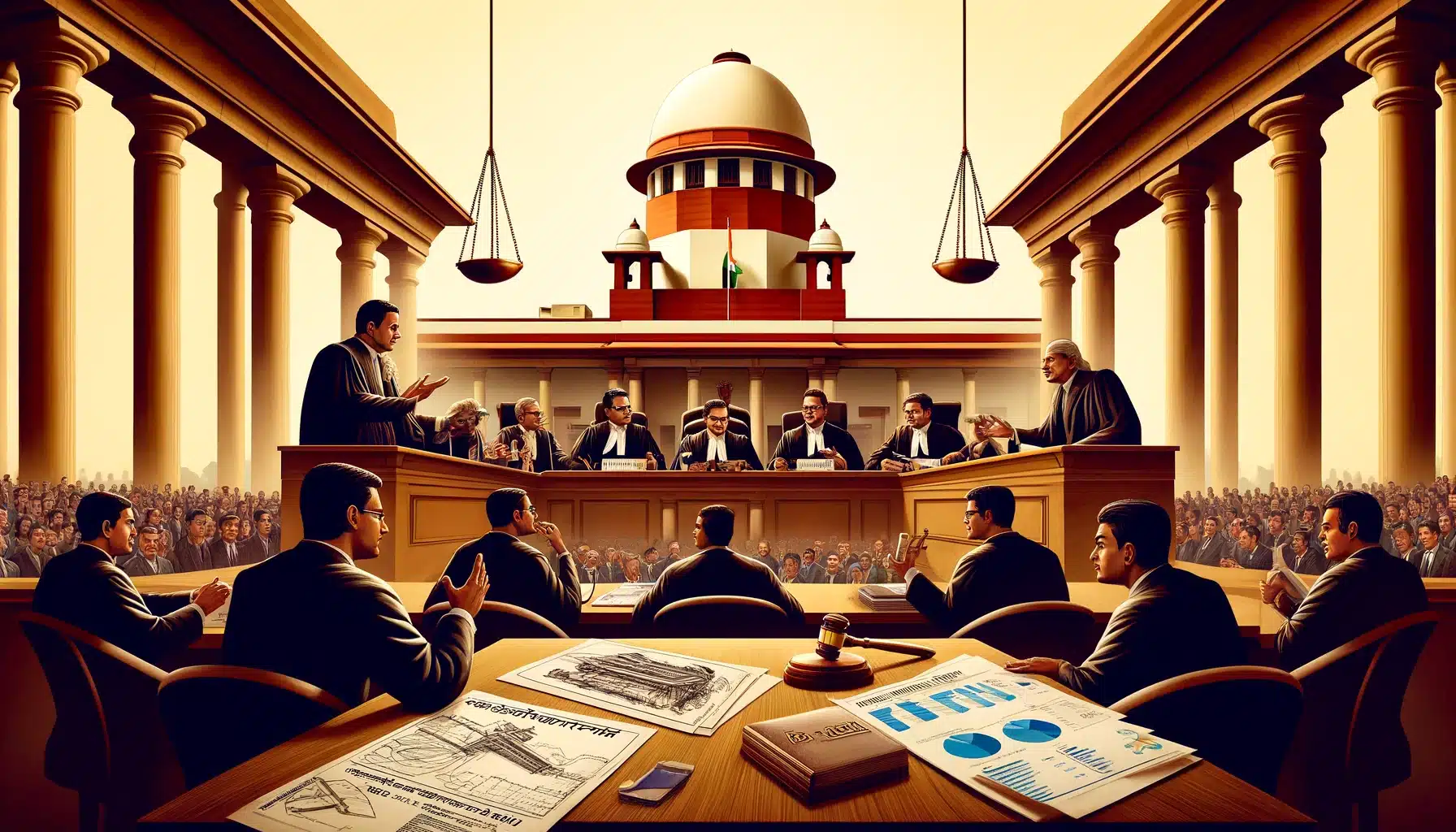A 7-judge bench of the Supreme Court, by a majority of 6-1, has ruled that sub-classification of Scheduled Castes is permissible to grant separate quotas for more backward groups within SC categories. The State must justify sub-classification with empirical data on inadequate representation. Chief J

Legal AI associate for drafting & compliance
A 7-judge bench of the Supreme Court, by a majority of 6-1, has held that sub-classification of Scheduled Castes is permissible to grant separate quotas for more backward groups within the SC categories. The Court clarified that while allowing sub-classification, the State cannot earmark 100% reservation for a sub-class.
The State must justify the sub-classification with empirical data on the inadequacy of representation of the sub-class. The Bench Composition had Chief Justice of India DY Chandrachud, Justices BR Gavai, Vikram Nath, Bela M. Trivedi, Pankaj Mithal, Manoj Misra, and Satish Chandra Sharma. Six judges upheld sub-classification, overruling the EV Chinniah judgment of 2004. Justice Bela Trivedi dissented.
Key Issues:
- Whether sub-classification within the reserved castes is allowed.
- The correctness of the E.V. Chinnaiah decision, which held that SCs notified under Article 341 formed a homogenous group and could not be sub-categorized.
Sub-Classification and Articles 14, 341
- CJI DY Chandrachud’s Opinion:
- Sub-classification does not violate the principle of equality under Article 14.
- Sub-classification does not breach Article 341(2).
- Justification for sub-classification must be based on quantifiable data.
- State decisions on sub-classification are subject to judicial review.
Key Opinions from the Bench:
- Chief Justice DY Chandrachud:
- “Sub-classification does not violate the principle of equality enshrined under Article 14 of the Constitution.”
- Sub-classification must be justified by empirical data showing inadequate representation.
- Justice Vikram Nath: Agreed with Justice Gavai on applying the creamy layer principle to SCs.
- Justice Pankaj Mithal: “Reservation should be limited to one generation. If the first generation reached a higher status through reservation, the second generation should not be entitled to it.“
- Justice Satish Chandra Sharma: Supported the view that creamy layer exclusion is necessary for SCs.
Dissenting Opinion:
- Justice Bela Trivedi:
- Argued that the Presidential list of SCs under Article 341 cannot be altered by the States.
- Sub-classification amounts to tinkering with the Presidential list, which is meant to prevent political influence.
- “Preferential treatment for a sub-class within the Presidential list will lead to deprivation of the benefits of the other classes within the same category“, he said.
Background of the Reference:
- State of Punjab v. Davinder Singh:
- A 5-judge bench in 2020 referred the matter to a 7-judge bench to reconsider the E.V. Chinnaiah judgment.
- The referral was triggered by a case on the validity of Section 4(5) of the Punjab Scheduled Caste and Backward Classes (Reservation in Services) Act, 2006.
Arguments by Petitioners:
- E.V. Chinnaiah Judgment: Wrongly interpreted Indira Sawhney. Petitioners argued that Chinnaiah rejected the state’s reliance on Indira Sawhney for subclassification only for OBCs and not for SCs/STs.
- Efficient Governance: Emphasized the need for subclassification to ensure diverse and effective governance.
- Heterogeneity in SCs: Highlighted the varied struggles and degrees of discrimination among different SC groups, arguing for the existence of subgroups within SCs.
- Article 341 Interpretation: Asserted that Article 341 only empowers the President to identify SCs and does not limit state legislative competence under Articles 246 and 15(4). Criticized Chinnaiah for not applying the twin test of reasonable classification and overlooking empirical data.
Arguments by Respondents:
- Purpose of Article 341: Argued that Article 341 aims to identify common discrimination among SCs, establishing homogeneity among diverse groups.
- Scope of Subclassification: Maintained that subclassification is within the Parliament’s domain, not the states, as per Article 341(2). States can raise concerns but not alter the Presidential list directly.
- Impact of Subclassification: Warned that subclassification could undermine the effectiveness of reservations and create a reverse Pran-Pratishtha effect, leading to unequal distribution of benefits within SCs.
State Of Punjab And Ors. v Davinder Singh And Ors. C.A. No. 2317/2011





